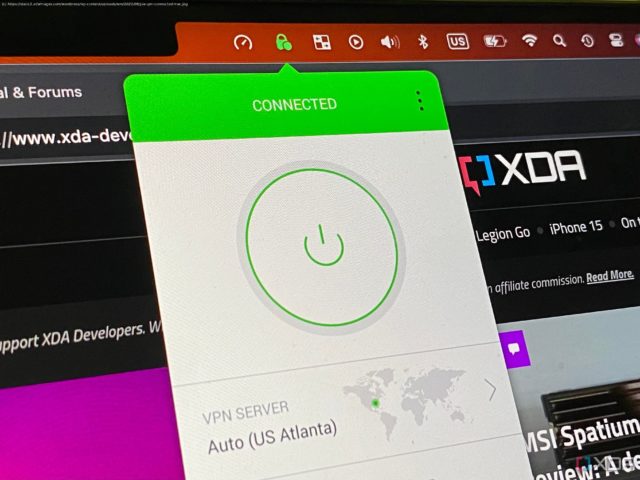Free VPNs give you enough data to get connected in a pinch but fall short of paid options in speed, server section, and data caps.
Whether you want to protect your privacy online or just want to cover your security bases while using public Wi-Fi, virtual private networks (VPN) put another layer between your device and the internet. The best VPNs work by routing your internet connection through a VPN server before accessing the rest of the internet, putting a secure tunnel between your device and the servers from which you’re pulling data. VPNs are a good way to give yourself some peace of mind online.
Free VPNs, however, are a bit trickier to trust because, at the end of the day, somebody has to pay for those servers. Many free VPNs are offered as more of a trial for a full service with restrictions that make them impossible to use all the time. Even so, these free VPNs can be excellent in a pinch for downloading a few emails or sending messages when you’re away from your home or work network.
The most significant restriction with free VPNs is data. Free VPNs often give you just enough data to browse the web or access email without worry, but if you try to download larger files, you’ll find that you run out of data rather quickly. Streaming video and attending online meetings can also add up rapidly.
One of the best free VPN services, Hotspot Shield, comes with 500MB per day on the free plan. That’s less than an hour of Disney+ with quality set to Save Data. If you plan accordingly, however, and stick to light usage, these free VPNs can be an excellent way of protecting yourself online as long as they’re from a reputable provider.
Proton VPN, on the other hand, doesn’t have a data cap, but speeds can be lower than paid accounts, and streaming isn’t supported. The paid version comes with faster VPN speeds and more servers in more countries. Using an unlimited paid VPN means you can leave it connected all the time without giving up too much speed or worrying about running out of data.
A VPN is nothing without its servers, and much of the time, the best servers are reserved for paying customers. Proton VPN, for example, has over 100 servers in three countries for free users but 2,900+ servers in 65 countries for paid ones. The capacity of these paid servers can be higher, but mostly, there are simply more of them to go around. If you look at Proton VPN’s server page, you’ll also see that the free servers are often very close to full capacity, which means that speeds can suffer. Proton VPN’s paid servers also support P2P file transfer, such as BitTorrent and Tor.
Whether you’re trying to view sites locked to certain regions or save money on merchandise that’s sold cheaper in another country, a VPN with plenty of servers gives you the best chance for success. Some VPN services even specify servers for streaming with extra upkeep to keep them from getting locked out.






